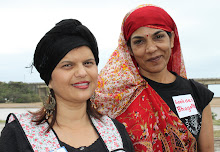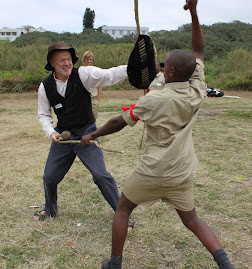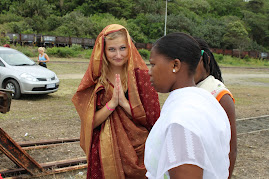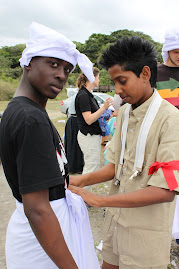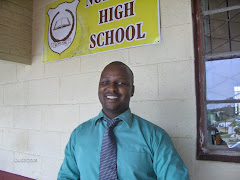Living History in Local Environment
Report 2006
Projectowner: ABF Kalmar County, Sweden
Projectleader: ABF Oskarshamn
Summary
The aim of the project is to train educators and museum professionals in South Africa, inhistoric environment education, as a way towards integration, democracy and poverty alleviation. The idea is to implement historic environment education both at Wolwerkloof Learning Academy Western Cape as well as in schools in KZN region.
In 2006, six pedagogues and museum professionals, three men and three women, from CapeWinelands, have been trained in South Africa and Sweden, The training has been organized inclose connection with the project Glands folkhogskola/ Wolwekloof Learning Academy.Three workshops about learning, historic environment education, time travels, historical perspective etc, have been arranged in Cape Winelands, one of them at the Wolwekloof Learning Academy. In two of the workshops a time travel was part of the program, in order to make the participants understand the method of living history at a local site. One of the timetravels was at Bain's kloof pass 1853, the other Wolwekloof 1773. In Bain's kloof pass alsotwo full-day time travels with learners from two neighbouring schools were held.The training in Sweden included education at the Kalmar lans museum and Olands folkhogskola and participation in five different time travels.
The cooperation with our South African colleagues has all the time been excellent. Now we want to "export" this project to KZN and first of all to Port Shepstone and Hibiscus Coast Municipality, as well as within UGU in the region.ABF and the method of peoples education will be used and we seek to implement theeducation ministry in KZN in the project.
However, the project shall be focused in the area where we since 1994 have had a twinning relation between Oskarshamn Sweden and Port Shepstone KZN.The project has achieved the goals set up in the application. In the evaluations it is written that the time travels has contributed to better self confidence, a pride of the work of the "underclass", a desire to change the conditions of poverty and to maintain the real meaning of democracy. The first step towards sustainable education in historic environment education and time travels in Cape Winelands and at the Wolwekloof Learning Academy have been taken.
Now we would like to use the experience learned and also include our twinning area in KZN between Oskarshamn and Port Shepstone. But more support the next coming years is needed, to make this educational method sustainable.
2006-12-17
Ebbe Westergren
Kalmar lans museum
